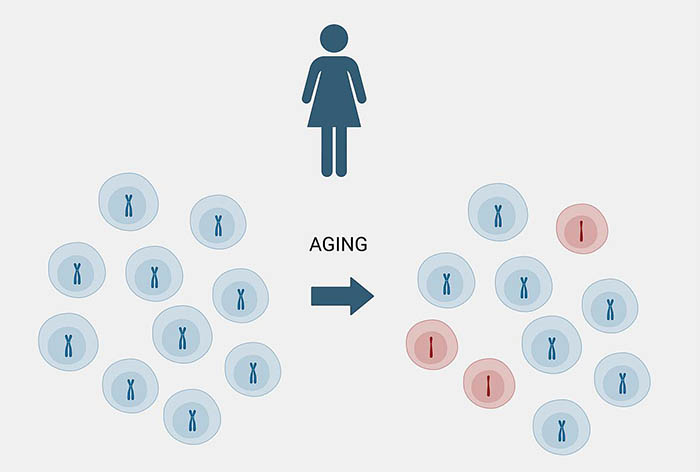Inherited genetic factors may predict the pattern of X chromosome loss in older women
A genomic analysis co-led by NIH suggests that the DNA a woman is born with may influence how her cells respond to chromosomal abnormalities acquired with aging
Researchers have identified inherited genetic variants that may predict the loss of one copy of a woman’s two X chromosomes as she ages, a phenomenon known as mosaic loss of chromosome X, or mLOX. These genetic variants may play a role in promoting abnormal blood cells (that have only a single copy of chromosome X) to multiply, which may lead to several health conditions, including cancer. The study, co-led by researchers at the National Institutes of Health’s (NIH) National Cancer Institute, was published June 12, 2024, in Nature.
To better understand the causes and effects of mLOX, researchers analyzed circulating white blood cells of nearly 900,000 women across eight biobanks, of whom 12% had the condition. The researchers identified 56 common genetic variants — located near genes associated with autoimmune diseases and cancer susceptibility — that influenced whether mLOX developed. In addition, rare variants in a gene known as FBXO10 were associated with a doubling in the risk of mLOX.
In women with mLOX, the investigators also identified a set of inherited genetic variants on the X chromosome that were more frequently observed on the retained X chromosome than on the one that was lost. These variants could one day be used to predict which copy of the X chromosome is retained when mLOX occurs. This is important because the copy of the X chromosome with these variants may have a growth advantage that could elevate the woman’s risk for blood cancer.

As some women age, their white blood cells can lose a copy of chromosome X. A new study sheds light on the potential causes and consequences of this phenomenon.
This page was last updated on Wednesday, June 12, 2024